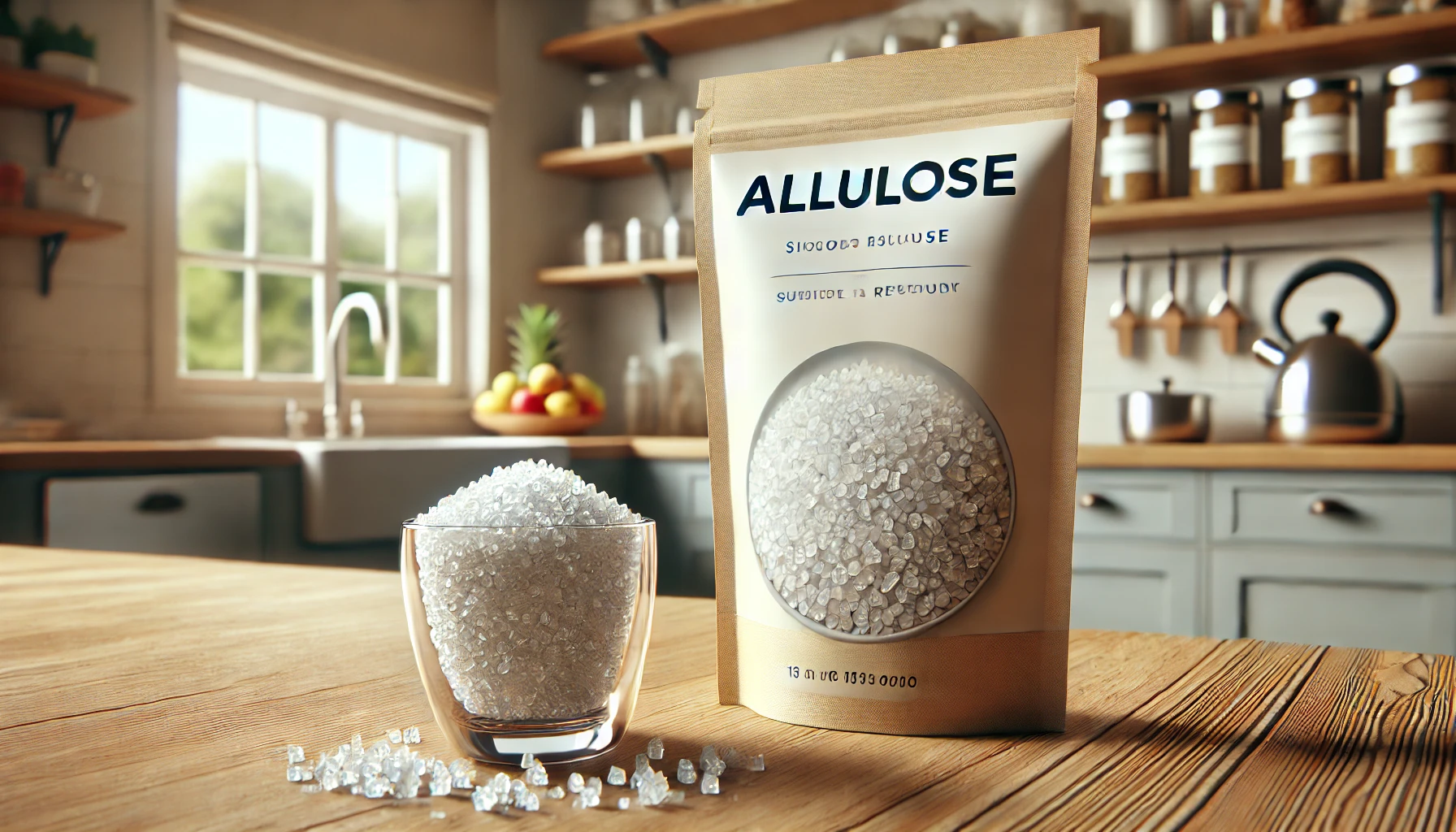This post was written with Consensus AI Academic Search Engine – please read our Disclaimer at the end of this article. Allulose, a rare sugar, has garnered attention as a promising alternative to traditional sugars. With its unique properties and potential health benefits, it is increasingly being considered for use in various dietary applications. This article explores the metabolic effects, safety, and potential benefits of allulose based on recent research findings.
Metabolic Effects and Safety
Allulose has been shown to have several beneficial metabolic effects. Studies indicate that it can lower glucose and insulin concentrations, making it a suitable alternative for individuals managing diabetes or insulin resistance. For instance, a study involving healthy subjects demonstrated that allulose significantly reduced glucose and insulin levels compared to a placebo1. Another study confirmed these findings, showing a dose-dependent reduction in plasma glucose and insulin levels in response to allulose consumption3.
Moreover, allulose appears to be safe for consumption. Research on its gastrointestinal tolerance in both adults and children has shown that it is well-tolerated with minimal adverse effects. In children, even higher doses did not result in severe gastrointestinal symptoms, suggesting its suitability for inclusion in various food products4 8.
Benefits for Diabetic Patients
Allulose has shown promise in improving postprandial glucose levels in diabetic patients. A study on type 2 diabetes patients revealed that a diet containing allulose significantly improved postprandial blood glucose levels compared to a standard diabetic diet2. This improvement is attributed to allulose’s ability to reduce the insulin requirement, thereby protecting pancreatic insulin secretory capacity.
Weight Management and Fat Oxidation
Allulose may also aid in weight management and fat oxidation. Research has demonstrated that allulose enhances postprandial fat oxidation, which can contribute to weight loss and maintenance of a healthy body weight6. Additionally, a preliminary study indicated that allulose supplementation led to a significant reduction in body fat percentage and body mass index (BMI) in overweight and obese individuals7.
Anti-Obesity and Anti-Diabetic Effects
Animal studies have shown that allulose has anti-obesity and anti-diabetic effects, which are now being corroborated by human studies. For example, allulose has been found to improve insulin sensitivity and reduce systemic and muscle insulin resistance in rats9 10. These findings suggest that allulose could be a valuable component in managing obesity and diabetes in humans.
Conclusion
Allulose is a promising sugar alternative with several health benefits, including improved glucose and insulin metabolism, weight management, and enhanced fat oxidation. Its safety profile further supports its potential for widespread use in food products. As research continues, allulose may become a key ingredient in dietary strategies aimed at managing diabetes and obesity.
Disclaimer
The content presented in this blog is generated by Consensus, an AI-powered academic search engine, and is based on publicly available scientific literature. While every effort is made to provide accurate, up-to-date, and well-researched information, the content is intended for informational and educational purposes only. It does not constitute medical advice, diagnosis, or treatment. Always consult a qualified healthcare professional before making any decisions regarding medical conditions, treatments, or medications. The AI system’s analysis may not cover all perspectives, emerging research, or individual cases, and it is not a substitute for professional expertise. Neither the blog publisher nor the developers of the AI-powered search engine are responsible for any actions taken based on the information provided in this content. Use of this information is at your own risk. Citations to the original scientific studies are included for reference, but these studies should be reviewed in full and interpreted with the guidance of a healthcare or research professional.
If you are experiencing a medical emergency, please seek immediate attention from a healthcare provider.
